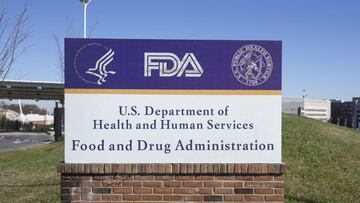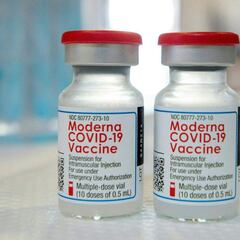What is Guillain-Barré syndrome, the rare condition that the FDA have linked to the Johnson & Johnson vaccine?
The disease has been identified in around 100 people who have received the one-shot Johnson & Johnson vaccination and Biden is expected to issue a warning shortly.


The Food and Drug Administration is reportedly planning to advise vaccine recipients that the Johnson & Johnson vaccine may cause an increased risk of Guillain–Barré, a rare neurological disorder.
The Johnson & Johnson vaccine is primarily used as a single-dose alternative for those who may struggle to get both doses of either the Pfizer-BioNTech or AstraZeneca vaccines. Despite the relatively low number of recipients the FDA have identified around 100 suspected cases of Guillain–Barré syndrome amongst people who received a Johnson & Johnson shot.
They stress that the chances of developing the rare condition are still extremely low, but that Johnson & Johnson recipients are between three to five times more likely to get the disease than the rest of the population.
What is Guillain–Barré syndrome?
The rare neurological disorder is linked to the body’s immune system and attacks your nerves with increasingly severe consequences. Most people recover naturally but there is currently no cure for Guillain–Barré syndrome, although there are available treatments which can reduce both the severity of the symptoms and the duration of the illness.
The most common first symptom of Guillain–Barré syndrome is a tingling in your extremities as the condition attacks your nervous system, which can also lead to sensations of weakness. From there the symptoms can spread fairly quickly around the rest of your body, with hospitalisation required in the most severe cases.
SCOOP: FDA expected to announce new warning on Johnson & Johnson vaccine linked to rare autoimmune disorder, Guillain-Barre syndrome. About 100 reports of GBS detected after 12.8 million doses. Most people fully recover from GBS. @lauriemcginley2 + me. https://t.co/NHMHyGAzg0
— LenaSun (@bylenasun) July 12, 2021
The exact cause of the syndrome is still unknown but it is thought the vaccine’s impact on your immune system is the trigger for those who have received a Johnson & Johnson shot. However the Mayo Clinic also points out that roughly two-thirds of patients say that had noticed infection-like symptoms in the six months before Guillain–Barré syndrome was identified.
There are some instances of lingering symptoms in Guillain–Barré patients, but studies suggest that between 60 and 80% of them are able to walk after six months. The mortality rate is thought to be between 4% and 7%, but for most people the syndrome is characterised by numbness and fatigue.
When will the FDA change vaccine guidelines?
Related stories
The New York Times has reported that the Biden administration could announce the new advice as early as Tuesday 13 July, with the FDA to add a warning for providers and patients. The Johnson & Johnson vaccine has been linked to a small number of Guillain–Barré cases but the FDA still consider the importance of getting people vaccinated as greater than the risk caused by the single-dose vaccine.
No link has been found between Guillain-Barré syndrome and the coronavirus vaccines developed by Pfizer-BioNTech or Moderna, the other two manufacturers authorized by U.S. regulators. Those rely on a different technology. https://t.co/0ImBh3UFQL
— The New York Times (@nytimes) July 12, 2021
Across the United States nearly 13 million people have already received the shot, a fairly low proportion. The more widely-used Pfizer-BioNTech and Moderna vaccines account for 92% of fully vaccinated Americans. As well as being less effective at preventing infection the Johnson & Johnson vaccine also suffered various manufacturing issues which caused delays in production.

